Criminal law (sexual offences and related matters) amendment act 12 of 2021
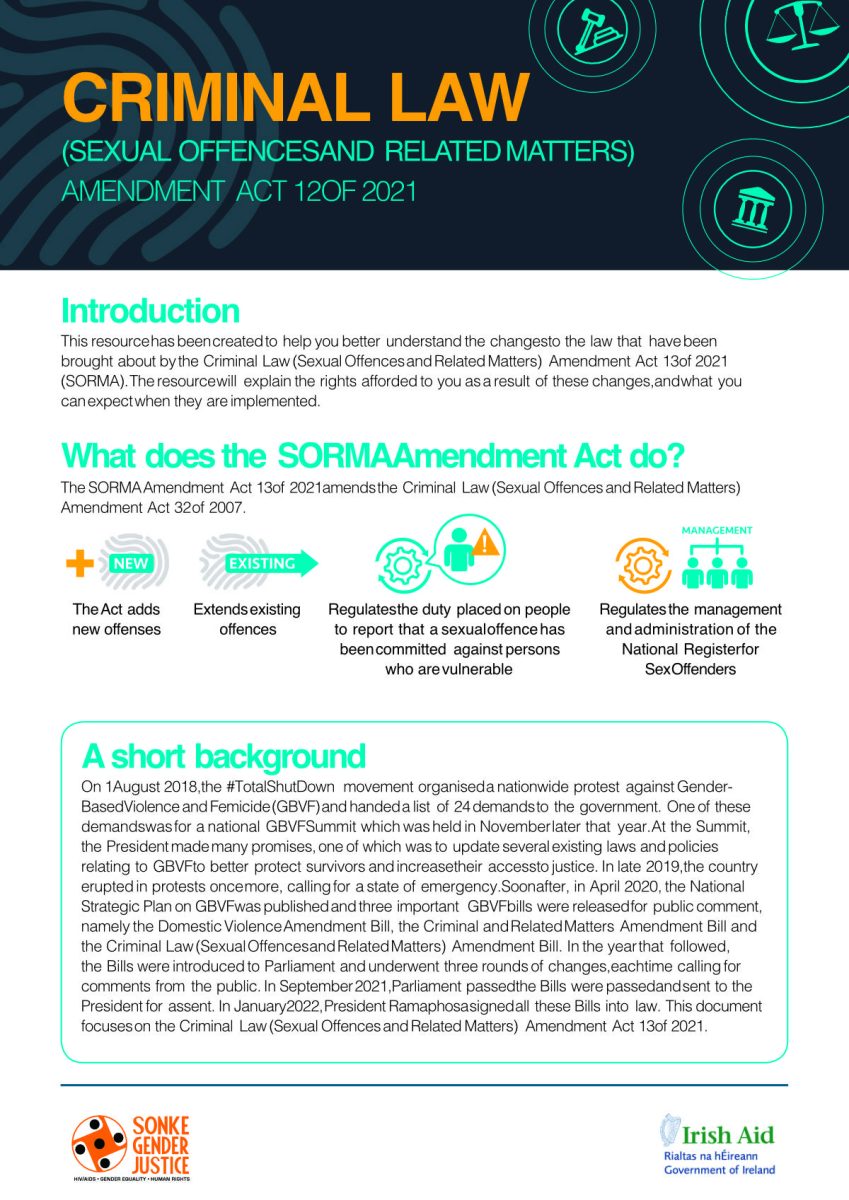
On 1 August 2018, the #TotalShutDown movement organised a nationwide protest against Gender-Based Violence and Femicide (GBVF) and handed a list of 24 demands to the government. One of these demands was for a national GBVF Summit which was held in November later that year. At the Summit, the President made many promises, one of […]
Engaging Interfaith Toolkit
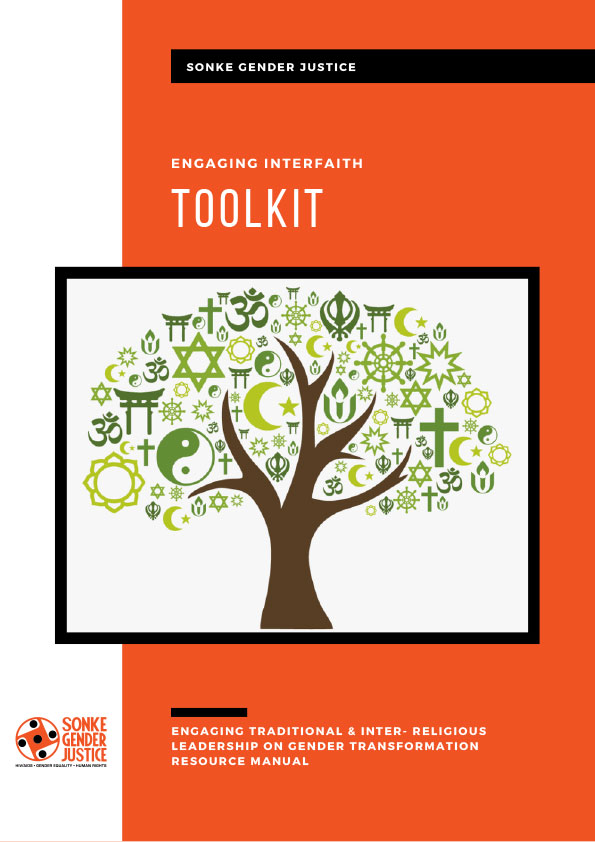
This training manual aims to create awareness of SGBV and Femicide, by creating safer spaces to enable, navigate and embrace both inter-religious and traditional leadership involvement in the protection, healing and emancipation of communities directly affected by SGBV. Through this training manual these terms will be used con-concurrently i.e. ‘religio-cultural’1 as a way of engaging […]
Engaging Men in the Elimination of Child Marriage
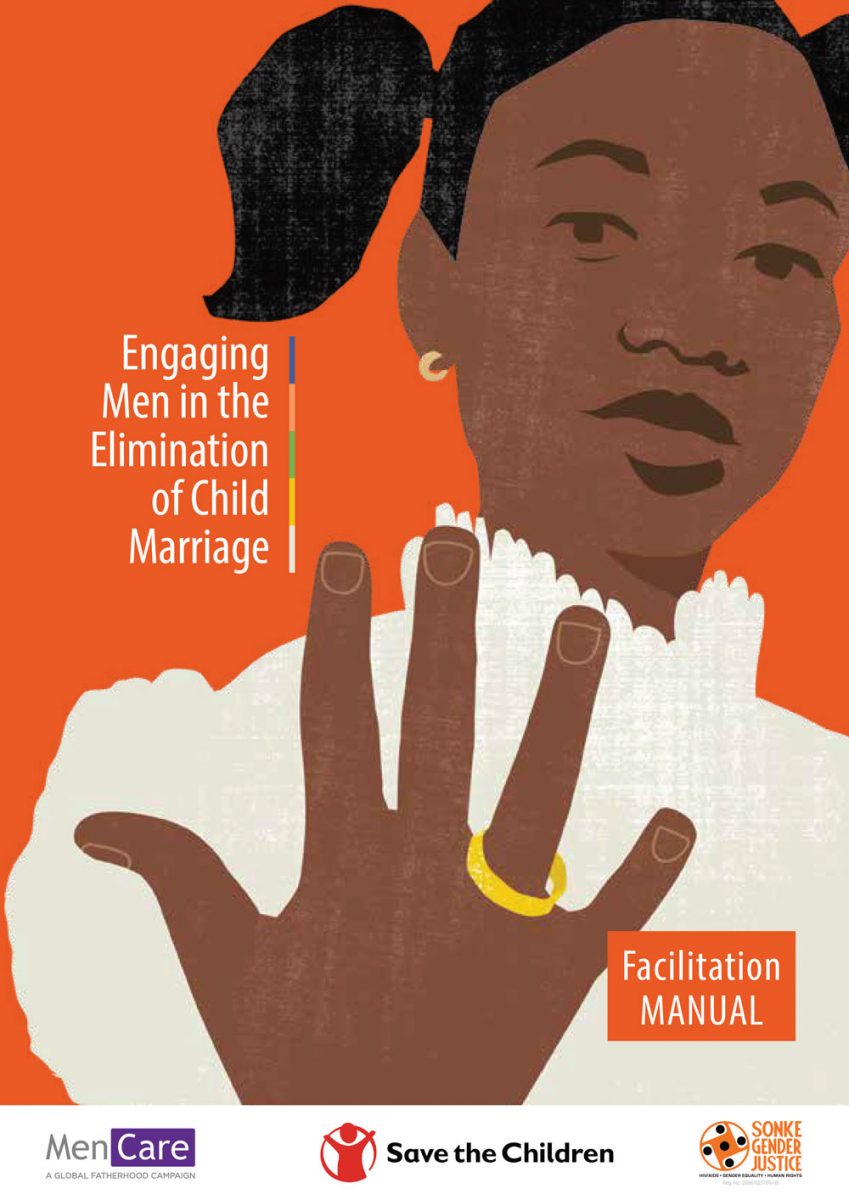
The State of the World’s Fathers report (www.stateoftheworldsfathers.org) is rooted firmly in a feminist analysis of care and the belief that unpaid care work must be valued equally with paid work and shared equally between men and women. Fatherhood marks a critical transition in a man’s life when he can either embrace a loving, caring, […]
A MenEngage Africa Toolkit for Engaging Men and Boys to Advocate for the Elimination of Female Genital Mutilation
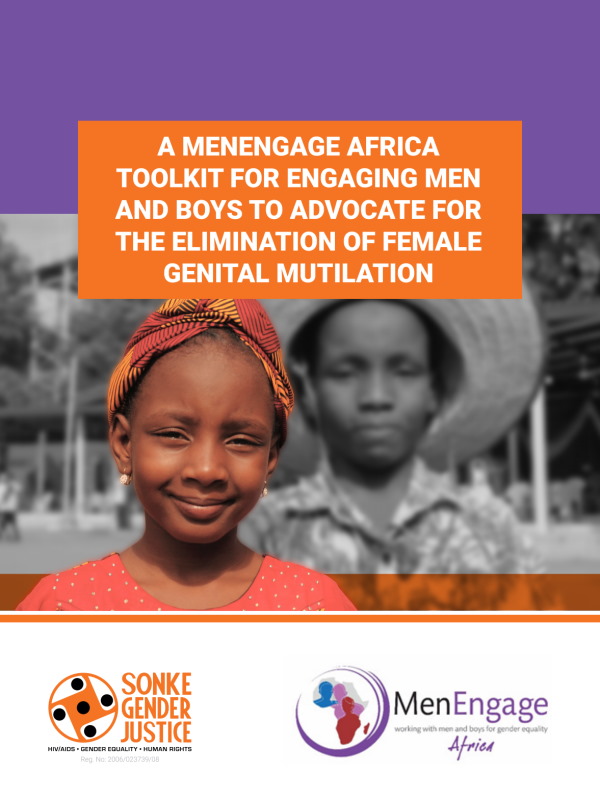
The overall goal of the FGM toolkit is to inform MenEngage Africa partners and other similar minded stakeholders on how to engage men and boys to advocate for an end to FGM. It is intended to create awareness on how to engage with men and boys in their diversities as they implement campaigns on ending […]
Dealing with the Challenges of Liquor at Community Level
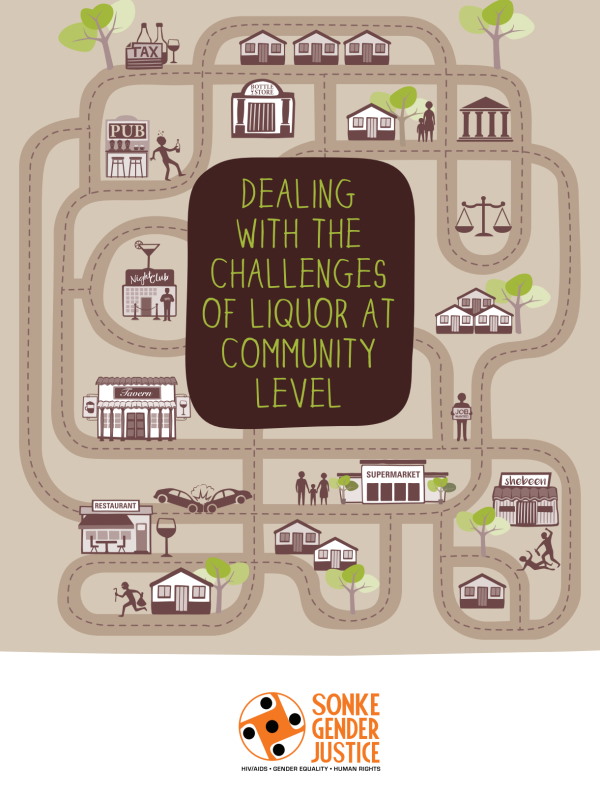
The World Health Organisation (WHO) 2018 Global Report on Alcohol and Health says that, in South Africa, 38.3% of men above 15 years old have never drunk liquor. It also says that 18.5% used to drink, but have now stopped. This means that, in South Africa, 56.8% of men above 15 years old don’t drink. […]
MenCare in Africa Media Kit
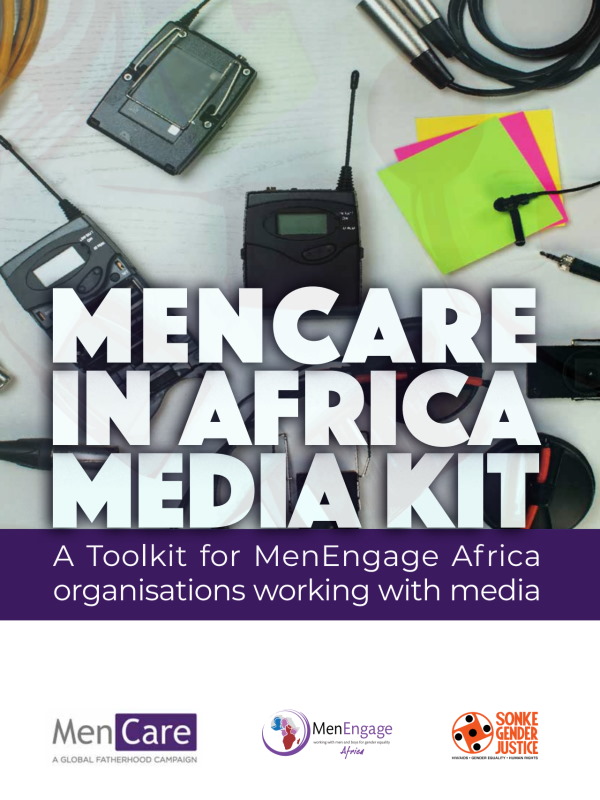
This Media Kit seeks to promote men as caregivers and fathers, through media campaigns, educational programmes and advocacy initiatives. Different campaigns tell the stories of men who challenge stereotypes to become more involved care-givers for their children. Other initiatives engage policy makers to legislate paid leave for new parents. Media is a powerful tool to […]
Case Monitoring Guide for Community Activists
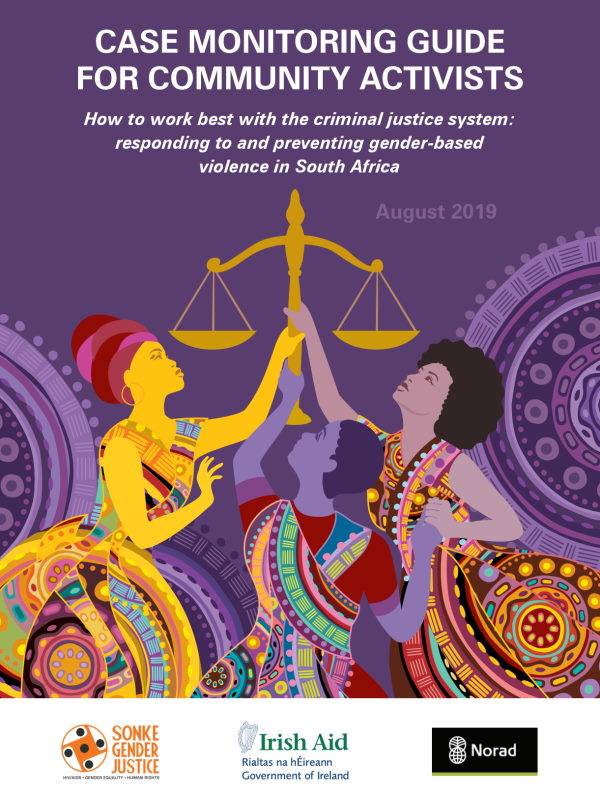
This guide is in response to a growing worry around the failure of the South African criminal justice system. Complaints include the police’s lack of urgency or respect when charging people, the overlong delays in court cases and the victim’s input throughout the legal process.
Reporting on Migration in South Africa
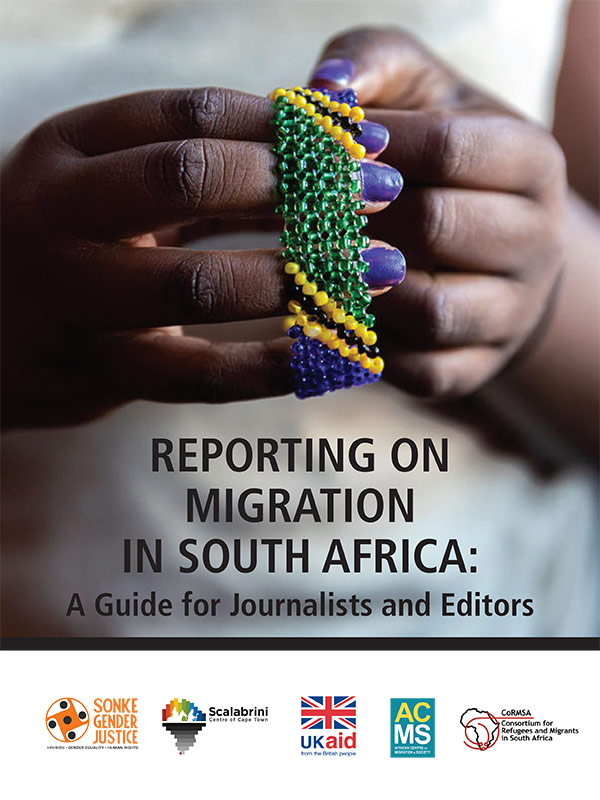
The media has an important role to play in changing perceptions and reshaping the conversations around migration. Sensationalist or over-simplified stories on migration or xenophobia can perpetuate or even encourage violence. It is therefore important to write about cross-border migration in a way that is responsible and educational. This guide was written with the understanding […]
MenEngage Training Manual
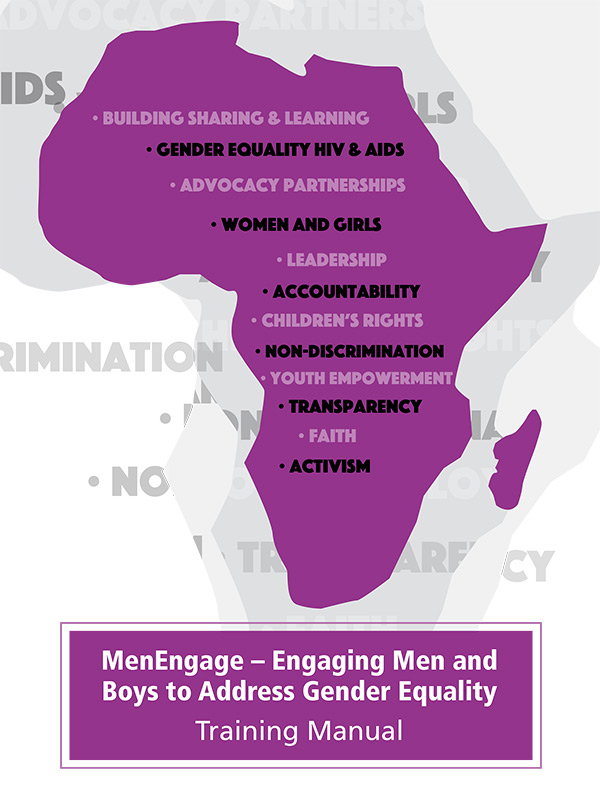
This training curriculum focuses on tackling HIV/AIDS and promoting gender equality. It seeks to empower MenEngage Africa country networks and partners in their work engaging men and boys for better outcomes around HIV and gender transformation across the continent. The curriculum is divided into four main modules: Gender transformation; Enabling change; Facilitating the change process; […]
Safe Rides For Everyone!
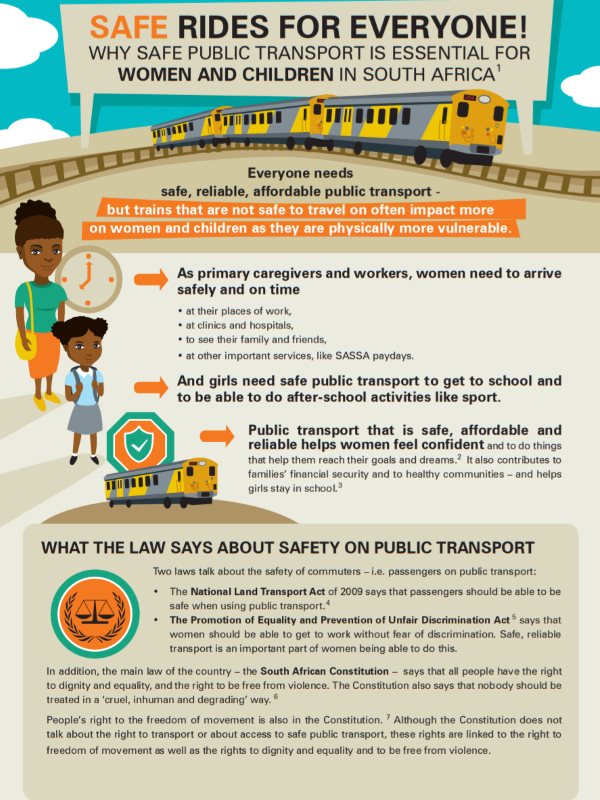
Everyone needs safe, reliable, affordable public transport – but trains that are not safe to travel on often impact more on women and children as they are physically more vulnerable.
Safe Ride! Facilitator’s Guide

This guide is to help you, the presenter or facilitator, with additional information and ideas about presenting the Safe Ride! radio dramas on your radio station, in a community discussion, or at universities and schools.
A Movement for Change: Toolkit
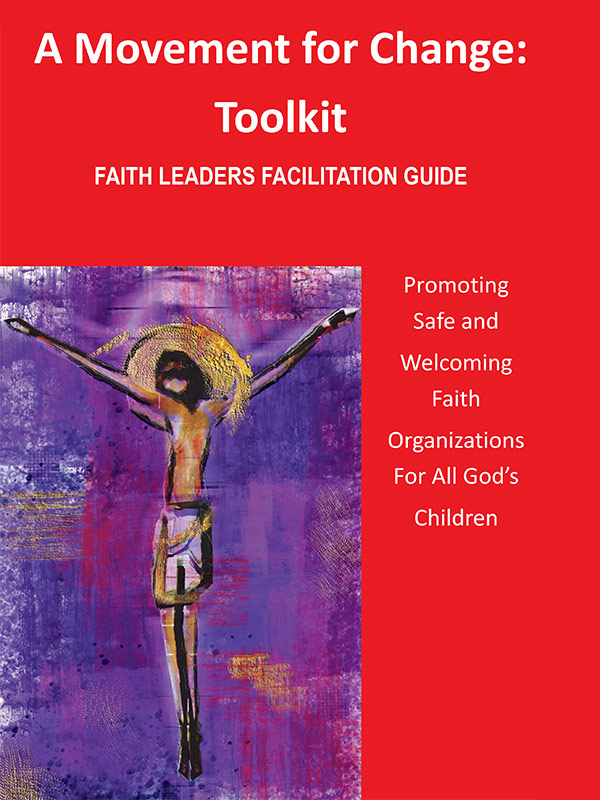
This toolkit was developed through the We Will Speak Out South Africa (WWSOSA) partnership. The information compiled in the pamphlets was informed by a series of workshops and trainings for faith communities in Gauteng and KwaZulu-Natal through Amplify Change funding. The toolkit is designed to enable faith leaders and faith communities in a Movement for […]
Church Resource Manual on Sexual Gender Based Violence
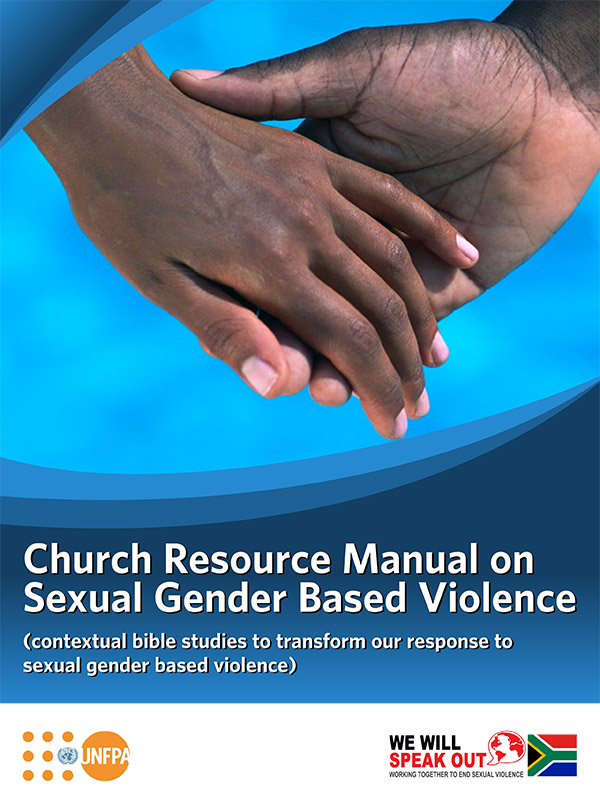
The Church resource Manual on SGBV was re-printed from the We Will Speak Out South Africa (WWSOSA) website. The manual has different Bible studies, chosen by individuals who have worked on contextual Bible Studies and are aware of the issues of sexual violence and gender justice that churches are grappling with.
Faith Leaders and the LGBT Community Toolkit
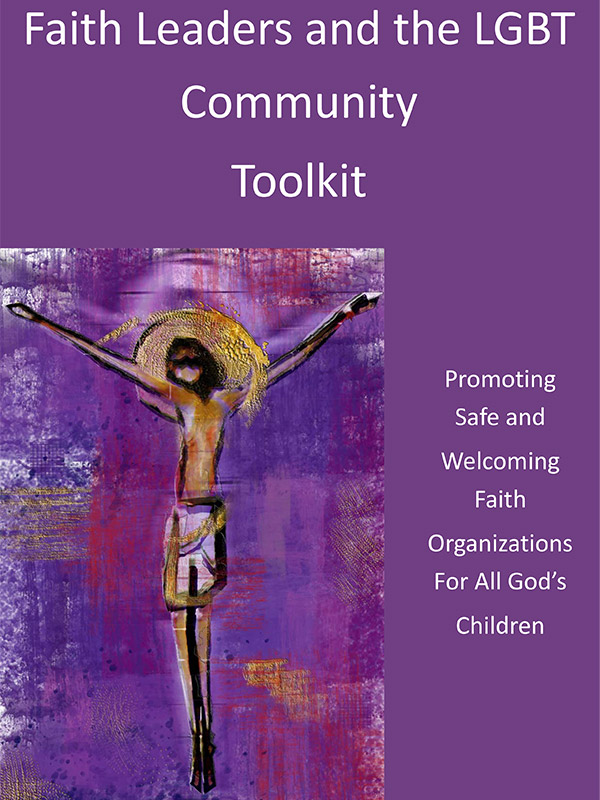
Welcome to the ‘Faith Communities and LGBT’ Toolkit. The issue of Lesbian, Gay, Bisexual, Transgender, Queer, Questioning, and Asexual (LGBT) in Faith Organisations, is a global challenge that most of the world’s Faith Organisations are grappling with. Until recently major Faith Organisations have opposed or prohibited LGBT people until recently. Sonke has developed this toolkit […]
Do No Harm
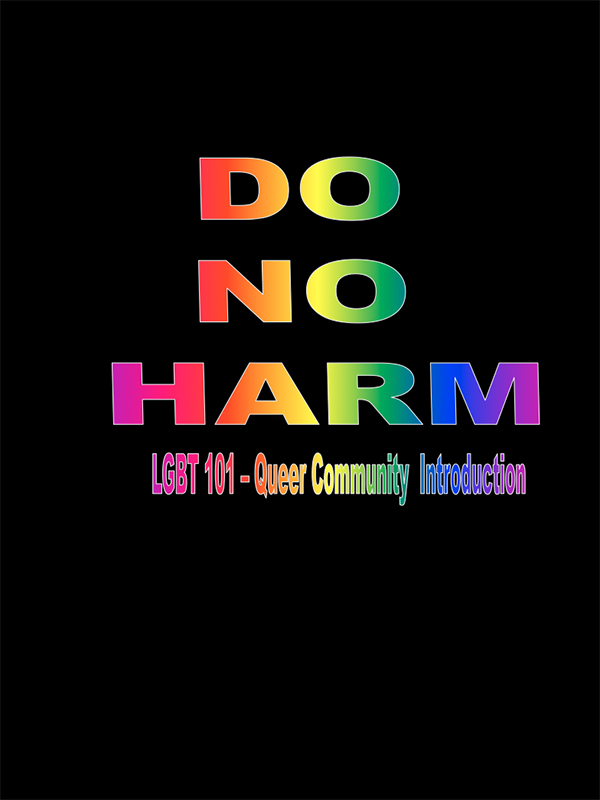
This presentation is ideal to be used hand-in-hand with the Faith Leaders and the LGBT Community toolkit. It takes participants through definitions that people often find difficult in understanding the terms used within the LGBT Community. This is an easy and simplified version that can be used, even during faith discussions, by almost anybody.
When Faith and Sexuality Conflict
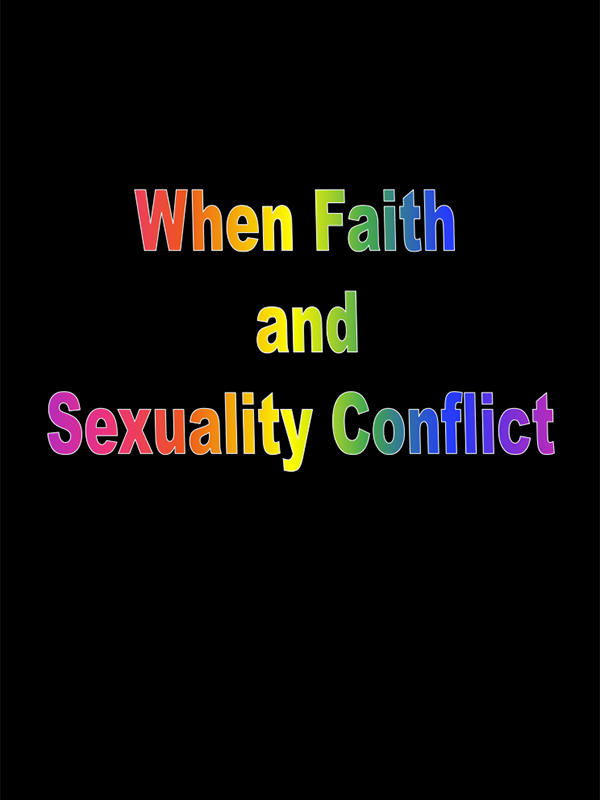
This presentation is ideal to be used hand-in-hand with the Faith Leaders and the LGBT Community toolkit. It enables members of Faith Communities to; Reflect on the conflict the LGBT Community might face between their faith and their sexuality Understand how this conflict might impact on the health and well-being of a LGBT person Appreciate […]
One Judge One Jail
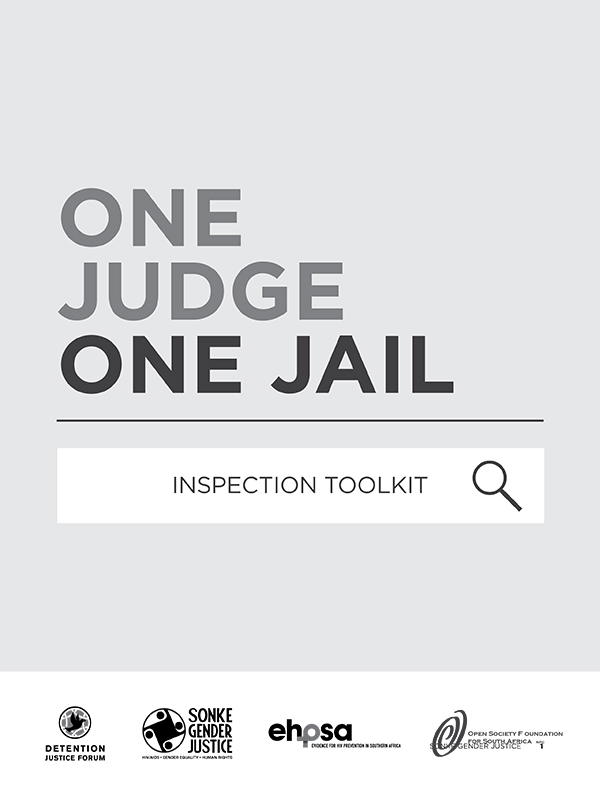
Consistent and effective prison oversight is a crucial means by which to ensure that inmates’ rights are monitored and protected. Together with the Judicial Inspectorate of Correctional Services (JICS), judges and parliamentarians are empowered to conducted regular visits to prisons and to report on the conditions and treatment of inmates. We strongly encourage the exercise […]
MenEngage Alliance Accountability Training Toolkit
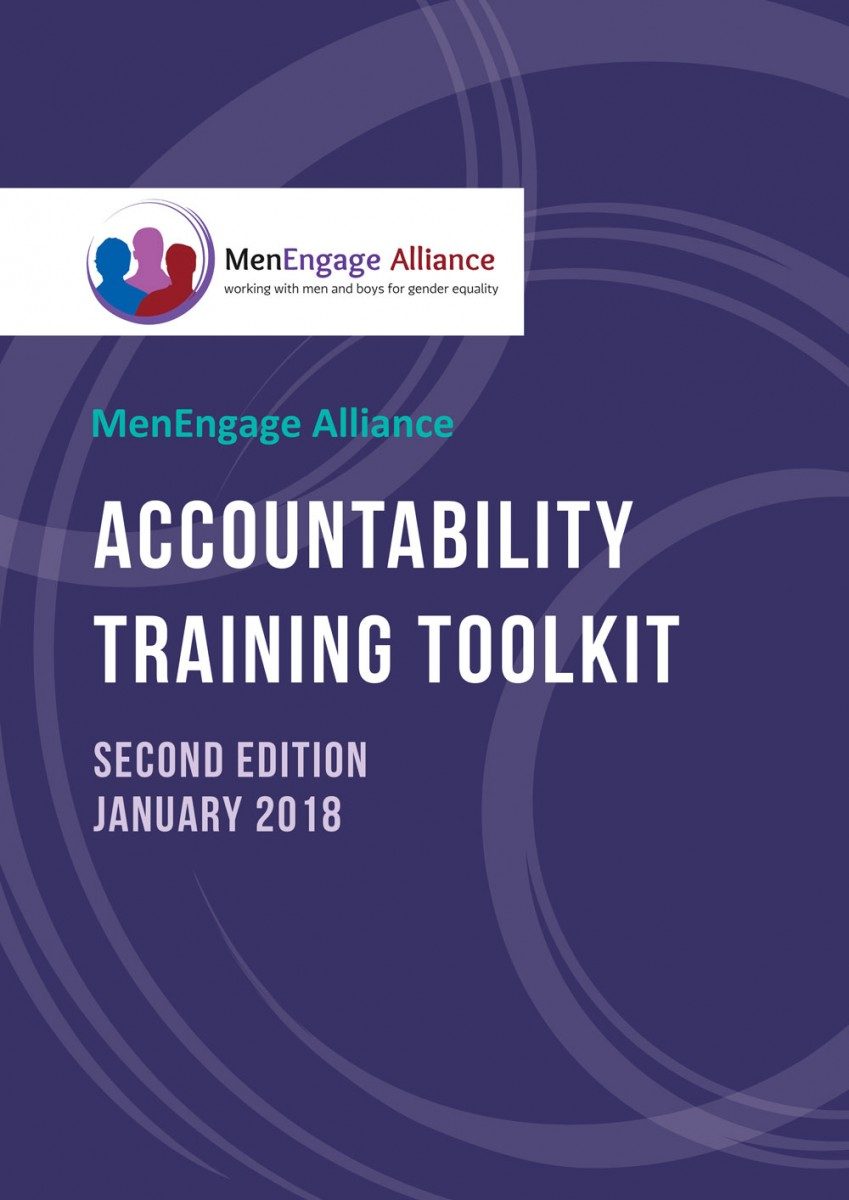
The training toolkit was developed to complement and put into practice the Accountability Standards and Guidelines of MenEngage Alliance. Through critical dialogue around what it means to be accountable to women’s rights and other important stakeholders, individuals and organizations will be able to define ways in which a culture of accountability can be promoted in […]
Church Resource Manual on Sexual Gender Based Violence
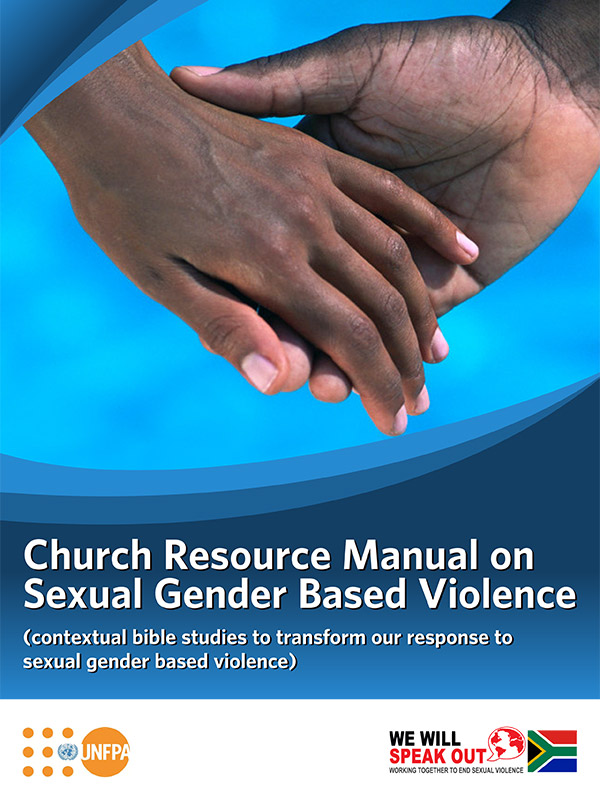
This book has different Bible studies, chosen by individuals who have worked on contextual Bible studies and are aware of the issues of sexual violence and gender justice that churches are grappling with in 21st Century South Africa. A self-discovery tool helps you identify which areas you may benefit from addressing first. If you score […]
Reporting on Gender-Based Violence
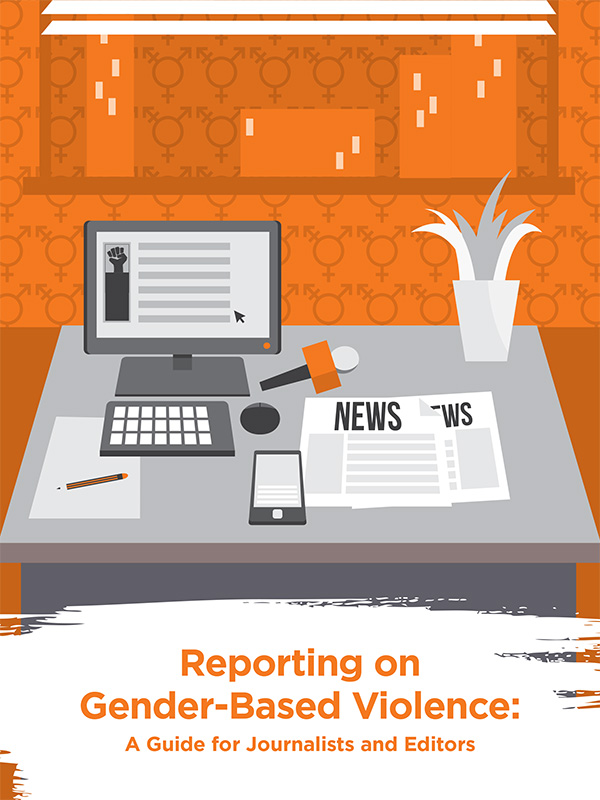
Rates of gender-based violence (GBV) in South Africa are staggeringly high, with a recent study in 2016 by StatsSA indicating that one in five partnered women have experienced physical violence in the 12 months prior to the survey. In developing this guide, it is understood that journalists and editors work under immense pressure, and that […]
Faith Leaders and the LGBT Community Toolkit
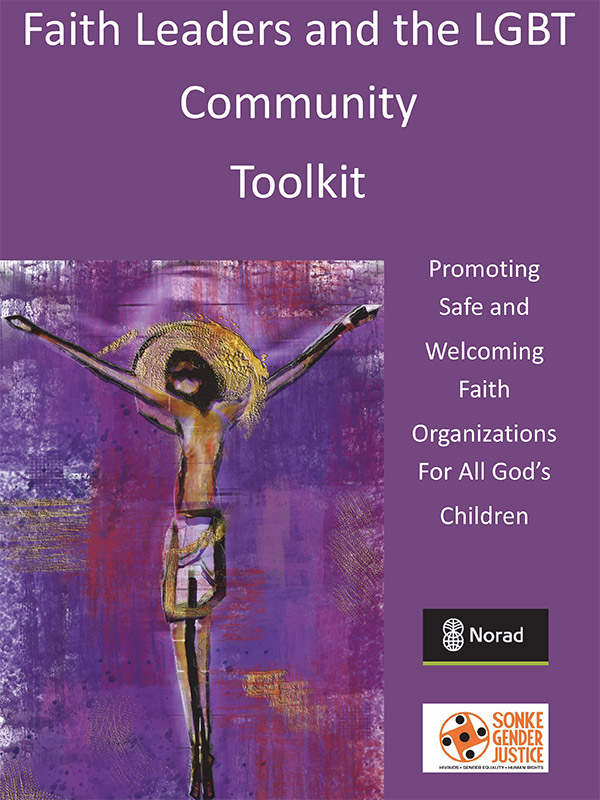
This toolkit was developed through the We Will Speak Out South Africa (WWSOSA) partnership. The information compiled in the pamphlets was informed by a series of workshops and trainings for faith communities in Gauteng and KwaZulu-Natal through Amplify Change funding. Sonke recognises the journey of a Faith Organisation from being non-affirming to welcoming and affirming […]
One Judge One Jail

South African prisons are fraught with conditions that lead to human rights abuses and high rates of sexual violence, HIV transmission and TB infection. Regular monitoring and reporting acts as a preventative measure against human rights abuses in prisons, including ill treatment and torture. This guide outlines the basic minimum standards of treatment for all […]
Time to Talk
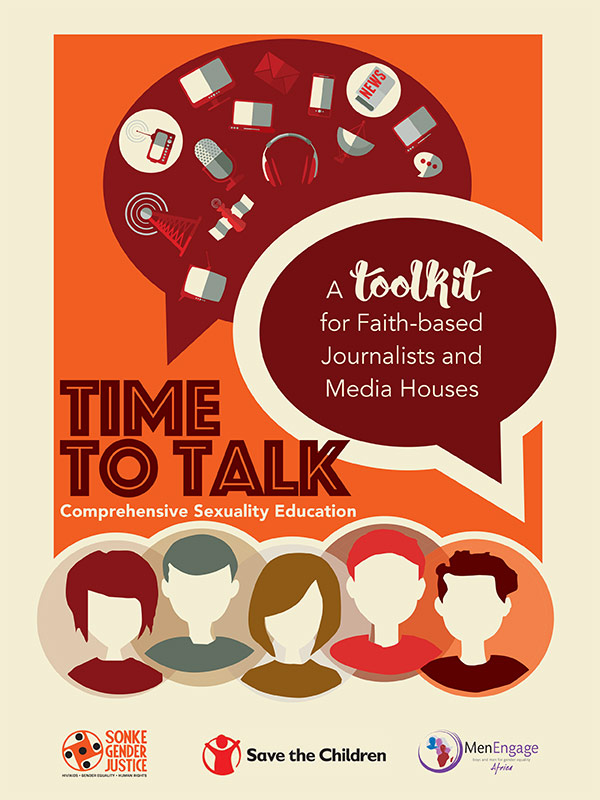
Children face confusing and often inaccurate information about sex and sexuality. Despite the need for clarity and guidance, there is still a resounding silence on sexuality in homes, schools and communities. Reasons for this include different beliefs and social expectations, lack of understanding about the critical importance of empowering children and adolescents with knowledge about […]
A Community Mobilisation Training Manual for Preventing men’s use of violence against women
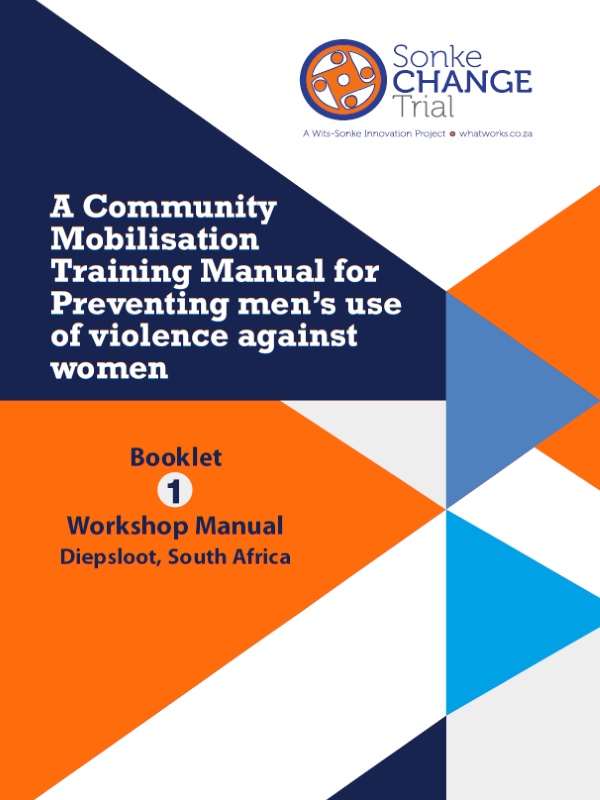
Violence against women and girls (VAWG) is a leading cause of morbidity and mortality among the 35% of women globally who experience it. Prevalence of VAWG is alarmingly high in Southern Africa. Large studies among South African men found that 27.5 – 31.8% report enacting violence towards partners, and 27.6% of men have ever raped. […]

